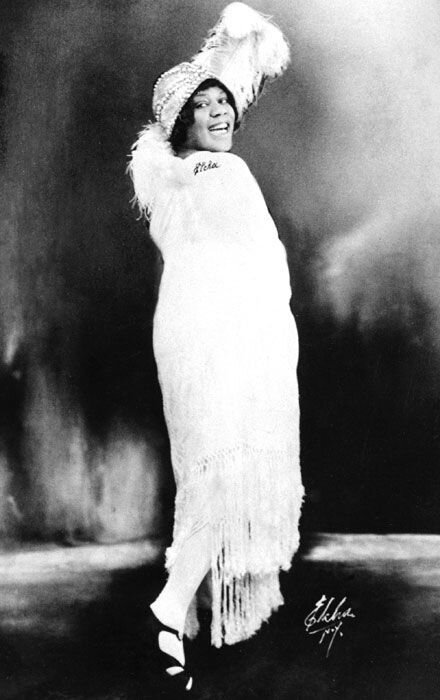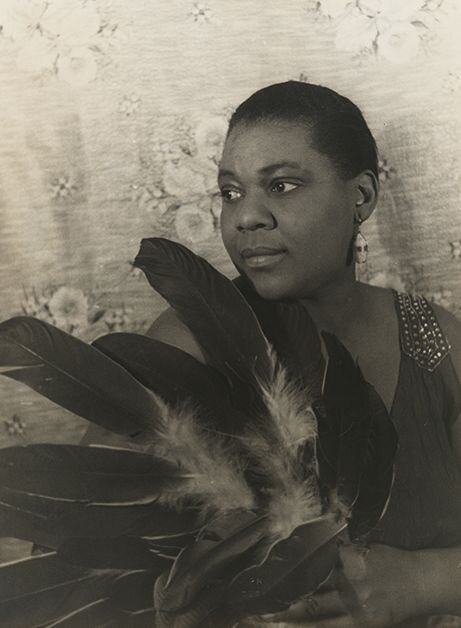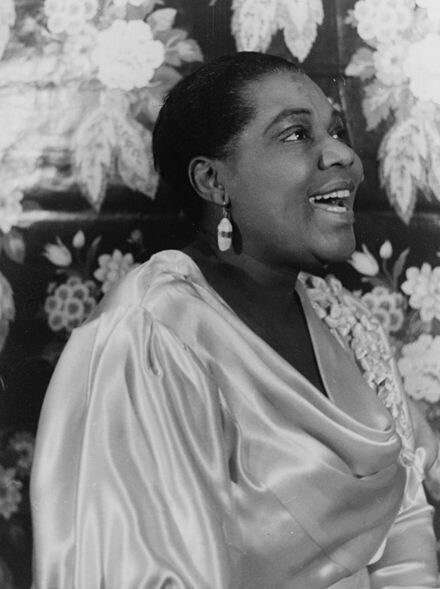Bessie Smith: The Empress of Blues and So Much More
Given the current events our country is facing and the protests in support of the black community, I thought it would be a great time to really highlight the life and career of Bessie Smith.
Unfortunately, I feel like a lot of people don’t actually know much about Bessie Smith and I fear her story is getting lost. However, she has been credited as the inspiration behind some of the most famous musicians such as Janis Joplin and Norah Jones. Janis Joplin was so inspired by Bessie that she ended up purchasing a headstone for Bessie since she had an unmarked grave for years. But Bessie’s legacy should be remembered for more than just her voice, but the themes behind her music.
As if being an African-American born at the end of the 19th century wasn’t hard enough, Bessie lost both her mother and father at a very young age and ended up being raised by her older sister. She wasn’t able to get an education due to poverty and helped earn money for the family by preforming in the streets with one of her brothers. After her oldest brother had already joined a small traveling troupe, he then returned after Bessie was older and helped arrange for her to be a dancer on that same traveling troupe. It was there that she met Ma Rainey who somewhat mentored her and helped craft her stage presence. Soon after, she was included as one of the vocal acts. After establishing her home base in Atlanta, she quickly became one of the main attractions for the Theater Owners Booking Association circuit, which specifically worked with African-American performers.
By 1920 she had started to establish herself as her own act and would soon take advantage of the demand for female blues singers. She was signed to Columbia Records in 1923 and was a part of the “race records” series a lot of companies were doing. That term was used because segregation at the time was keeping black artists from being able to put out records and there hadn’t been a genre set up for African-American artists yet. Race records were marketed towards African-Americans but due to their popularity amongst the blues and jazz scene, white people started to purchase them as well. After she started recording records, she quickly rose in popularity and soon became the highest paid black entertainer at that time. She even had her own railroad car she would travel around in and perform tent shows. Once the Depression hit, her career then started to suffer a decline but she was able to pull herself out of that by taking on some acting roles and dabbling into swing music before her unfortunate death in 1937.
The majority of Bessie’s music centered on themes of sexuality, independence, social issues, demanding respect as a woman, and the hardships faced by African-Americans at that time. She was bold and vocal about these issues during times when these subjects weren’t discussed as often. Historians have even considered many of her songs to be some of the early forms of protest music. She was bold and essentially considered vulgar to the point that despite her success, many people wouldn’t give her the respect she deserved because they considered her to be too rough around the edges. She enjoyed booze often, even during prohibition, and would even stop singing to spit if needed. Bessie was also bisexual and had multiple sexual relationships with women, despite being married to a man. Through her music she encouraged women to be more independent, be able to party like the men, let loose, and explore their sexuality instead of being tied to the house. She used her music and voice to be an activist for multiple issues and made it clear about the injustices she and other African-American women were facing. Due to her rising popularity, white people were enjoying her music as well, giving the struggles she would sing about the opportunity to really be heard by different crowds and begin the start of an understanding.
To think that Bessie was at the height of her fame a little under 100 years ago singing about similar issues that are still being advocated for today shows that although we have made tremendous progress, we still have more progress to be made.
The world knows Bessie most as the “Empress of Blues” but I feel a bit more people need to understand that there was so much more to her than just her soulful blues. She came from a parentless, poor household during segregated America and created a major success for herself. With her success, she was bold in who she was and unapologetic in what she was passionate about. She used her success to be a voice for those who didn’t have a voice for so long. She gave woman the confidence they needed to be independent and take command of their lives. She provided an opportunity for the struggles of the black community to be heard by so many more people than before. And her music paved a way for future artist to create more protest music so boldly as she did.
I highly encourage you to give Bessie Smith’s music a listen during today’s crucial times. Maybe you’ll be inspired, maybe you’ll feel a bit more heard and understood, or maybe you’ll simply enjoy some sounds of the 1920’s. Either way, the historical themes in Bessie’s music is something we should all consider these days.
Thanks for reading!
photos via Pinterest



